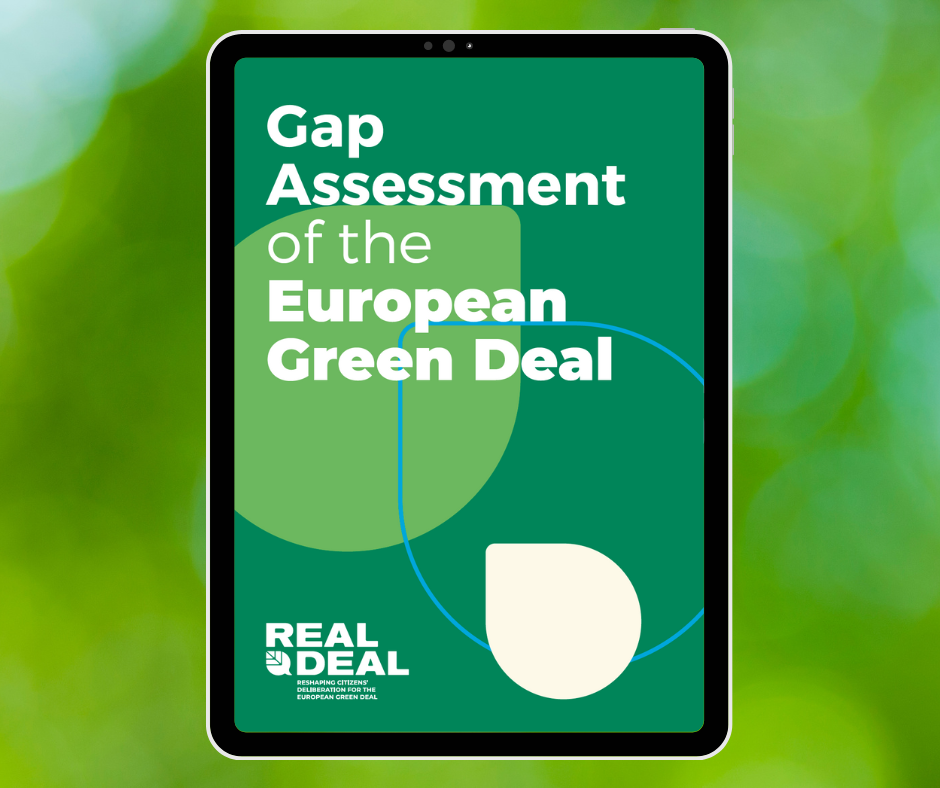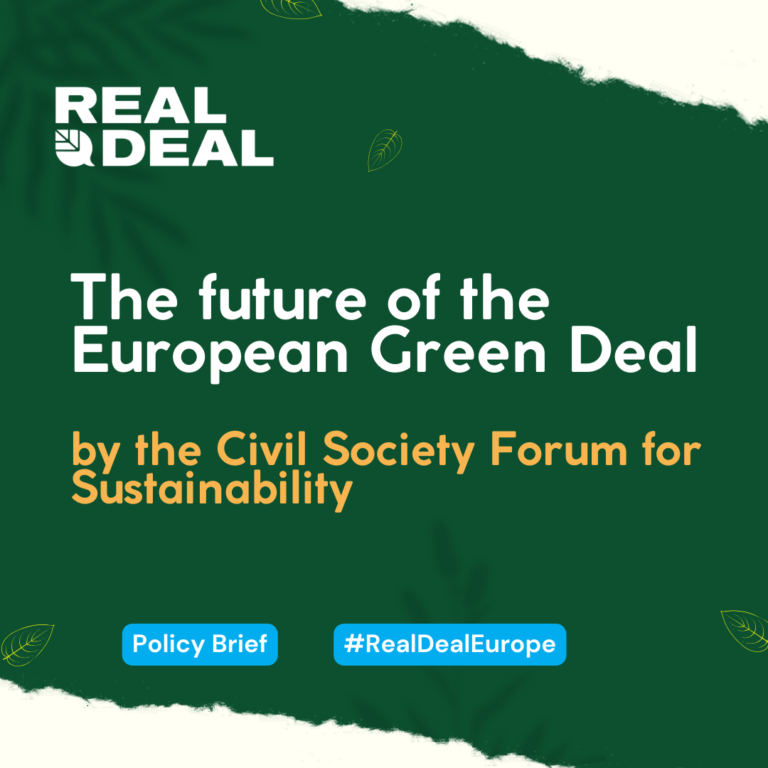Gap Assessment of the European Green Deal
This report includes the gaps and the recommendations for policy-makers to bring the European Green Deal closer to citizens
Main objectives of the report
- Assess the gaps of the EGD towards achieving the SDGs and the United Nations 2030 Agenda
- Identify the EGD’s shortcomings and disconnections from other relevant processes
- Monitoring the progress and provide key concrete recommendations
Key gaps and recommendations for policy-makers
To ensure complementarity with policy processes and frameworks and adequate monitoring and accountability of the EGD:
- Implement a long-term and horizontal strategy to implement the Sustainable Development Goals (SDGs) as an overarching framework for EGD policies.
- Encourage participation by citizens and non-institutional actors, promoting Policy Coherence for Sustainable Development.
- Prioritize meaningful participation, inclusion, and outreach to marginalized and underrepresented groups.
- Strengthen the capacity of civil society organisations (CSOs) and citizens to participate in policy-making processes.
To address the unsustainable impacts of production and consumption beyond the EU’s borders:
- Introduce a target for reduced material use of 70% across the EU by 2050.
- Prioritize new economic models over extractive and inefficient systems, supporting green jobs and improving social welfare.
- Ensure investment decisions align with environmental and sustainability policies, supporting local sustainable activities and the cooperative economy.
To redefine the social dimension of the EGD:
- Adopt a human rights-based approach with an intersectional and participatory focus.
- Foster transdisciplinary and multi-sectoral approaches with a strong scientific evidence base.
- Redefine concepts of equality and discrimination to include multiple categories of identity and address systemic and institutional dimensions of oppression.
To strengthen civil society organisations’ role in the EGD:
- Strengthen capacity-building efforts and support for CSOs to contribute meaningfully.
- Promote monitoring and reporting on the EGD to hold the EU accountable.
- Enhance civil society participation in decision-making through transparent communication and sufficient time for participation.
In times of crisis, prioritise long-term vision and objectives, facilitating a just transition that leaves no one behind. Civil society organisations will continue to support environmental and social policymaking and work together for a transformative Green Deal.
You can find out more about the gaps identified by downloading the full report (click here to download).




